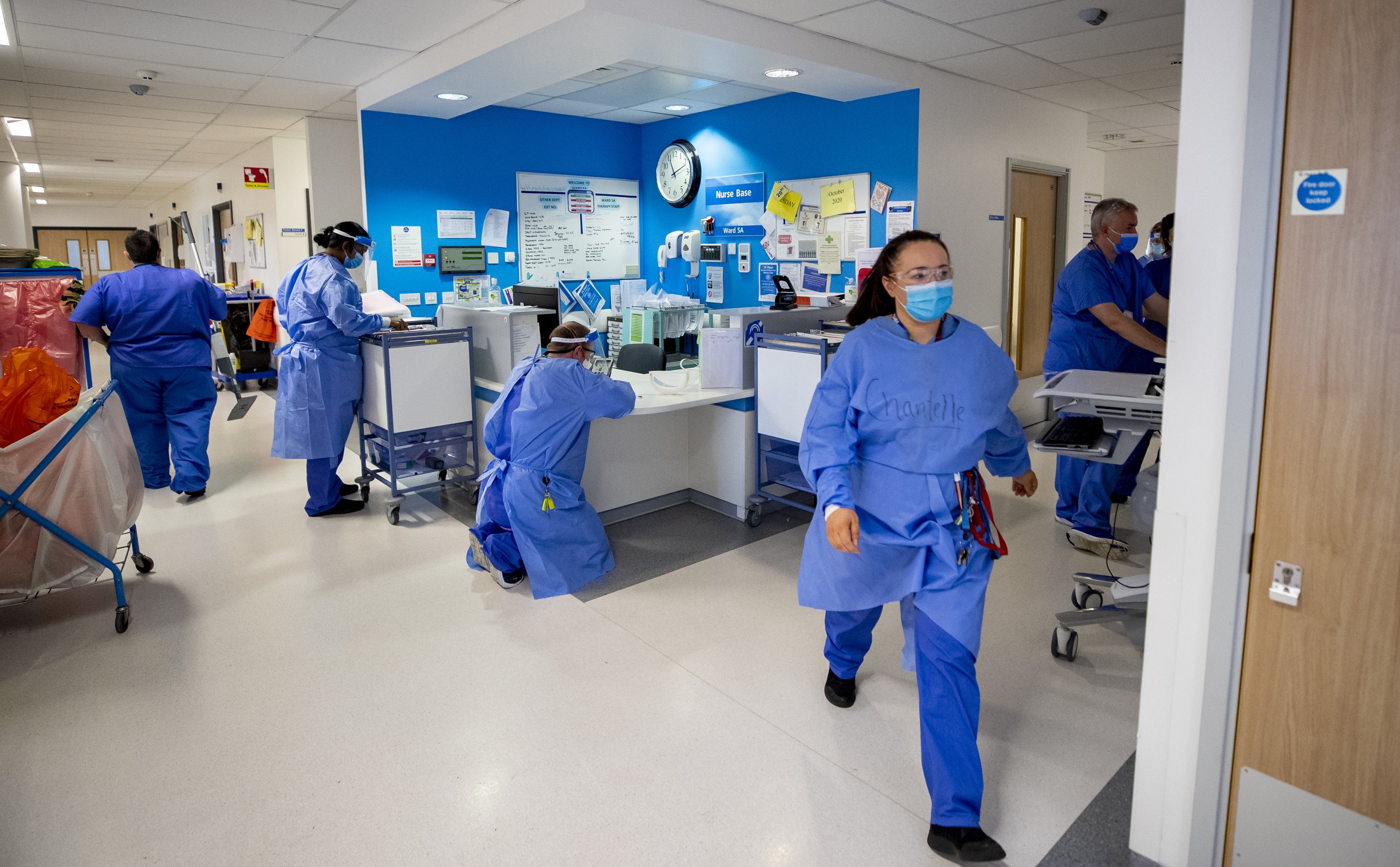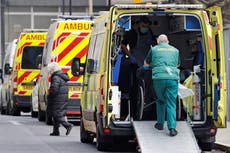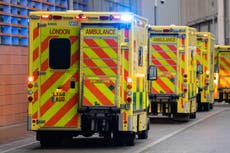More than 18,000 NHS staff off sick with Covid last week – up by 50%
NHS medical director Stephen Powis has warned the NHS is “on a war footing” amid “worrying” increase in staff sickness

The number of NHS staff off sick with Covid reached 18,829 last week, up by 50 per cent in just seven days, while thousands of patients were stuck in hospital who shouldn’t be there, new data has revealed.
The number of healthcare staff off sick with the virus in London, the epicentre of the Omicron wave, hit 3,874 last week which is more than three times the number off in the week of 12 December. The Midlands followed closely with 3,855.
While the capital saw the biggest increase in staff off sick with Covid, the South East and the East of England followed, recording a 61 per cent and 58 per cent increase respectively.
The total number of staff off sick, including for non-Covid reasons, reached 64,221 on 19 December, up by 12 per cent on the 12 December. In London a total of 8919 staff were off sick, meaning Covid absences accounted for 43 per cent of staff sickness overall.
The news comes amid increasing concerns over the level of staff predicted to be off sick in the next month - with most hospitals in England forecasting more than 30 per cent of staff could be off sick in January as Omicron infections rip through the population.
Weekly data published by the NHS on Thursday also showed as of 19 December, almost 5,000 patients who were in hospital last week had been awaiting discharge for more than three weeks. This is out of 15,718 patients in hospital beds who no longer need to be there.
The figures come after the NHS published guidance for hospitals on Wednesday evening asking them to prepare to use hotels, and care homes as hospital wards for patients who cannot yet be discharged home.
NHS leaders have also been told they will have to treat 15 per cent of Covid patients at home, in “virtual wards.”
They have been asked to “urgently” discharge patients who no longer need a hospital bed in a move to free up as many beds as possible ahead of a Covid admissions surge in January.
The plans come as data published on Thursday by the NHS revealed 90 per cent of hospital beds in England were occupied as of 19 December.
Patients who could be discharged into hotels would be those who no longer need to be in hospital but would need “short-term accommodation” and care to improve their health. These patients would have health visitors or other care professionals in charge of their treatment at the hotel.
Included in a list of safety measures NHS England said hotel rooms should be preferably on the ground floor close to exits and allocated in blocks.
The NHS will also look to discharge elderly patients into care homes for NHS care rather than have them reside in a hospital bed. These patients, who cannot be discharged to there would be discharged into these “re-enablement units” for four weeks.
As part of guidance published on Wednesday evening, hospitals were asked to make plans to treat 15 per cent of Covid patients at home by 31 December.
The guidance said: “We encourage systems to ensure that only patients who would otherwise be in a hospital bed are onboarded onto the more intensive virtual ward model.”
Responding to the latest NHS data, Chris Hopson, chief executive of NHS Providers which represents all hospitals in England, said: “These figures show how Omicron is having a tangible real-time impact on a service that was already operating beyond full stretch, through increased staff absences.
“This is a big worry for trust leaders who are doing all they can to support colleagues at this very challenging time. Absences due to Covid-19 are up nearly 40 per cent, and with community infections surging ahead, that figure may well get worse before it gets better.
“The pressures on hospitals, mental health, community and ambulance services are intense.”
He said it was worrying to see delayed discharges have increased again and warned the next couple of weeks will be a huge test for the NHS.
National medical director Professor Stephen Powis said: “The NHS is on a war footing and staff are taking the fight to omicron, by boosting hundreds of thousands of people each day, treating thousands of seriously ill Covid patients and delivering urgent care for other conditions, all while seeing a worrying, high and rising increase in absence due to Covid.
“We are once again ramping up to deal with the rise in Covid infections, and quite rightly staff are making every possible preparation for the uncertain challenges of omicron, including recruiting thousands of nurses and reservists, but while we’ll leave no stone unturned to get the NHS battle ready, it remains the case that the best way to protect yourself and others is to follow guidance and to come forward and get your first, second and booster jabs.”
Join our commenting forum
Join thought-provoking conversations, follow other Independent readers and see their replies
Comments


Bookmark popover
Removed from bookmarks